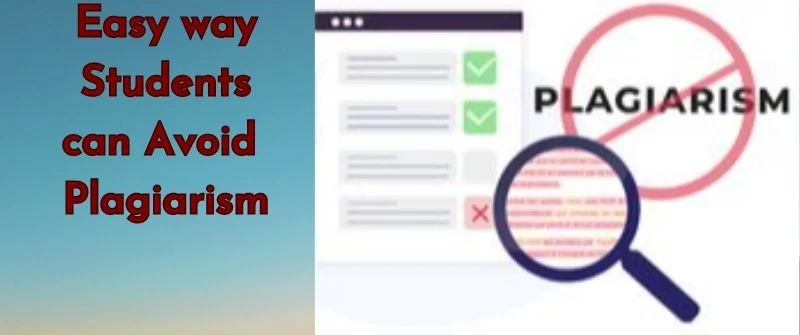Avoiding plagiarism as a student is crucial to upholding your academic integrity and succeeding in your studies.
Without giving due credit, using someone else’s words, ideas, or works constitutes plagiarism and can have serious repercussions, including failing classes or assignments or even being expelled.
Fortunately, you have many options for avoiding plagiarism, including using plagiarism detection programs, paraphrasing, and correct citation and attribution. We will go into more depth about these tactics in this post.
Understanding Plagiarism
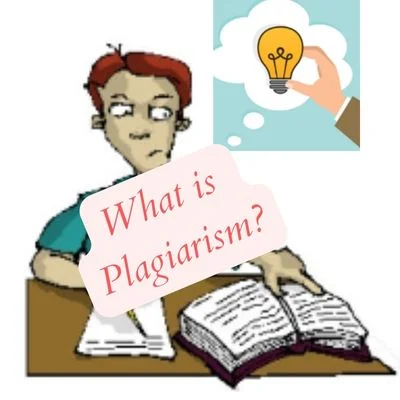
Using another person’s words, ideas, or works without giving due credit or attribution is plagiarism.
Examples are inappropriate paraphrasing without proper attribution, copying and pasting text from the internet or other sources, and even submitting works that someone else has authored.
The penalties for plagiarism can be severe, ranging from failing a course to being expelled from school. It is regarded as a significant academic infraction.
Students need to be aware of the several sorts of plagiarism, such as:
- Direct plagiarism: It is when a student replicates another person’s work word for word without giving due credit.
- Self-plagiarism: It happens when a student submits the same piece of writing for several tasks without first getting permission from the teacher.
- Mosaic plagiarism integrates text from various sources without giving due credit or acknowledgment.
- Accidental plagiarism can occur when a student fails to cite a source or unintentionally paraphrases the source material too closely.
- Plagiarism by omission: It happens when a student purposefully forgets to cite a source in their writing.
To maintain academic integrity, students must be aware of certain forms of plagiarism and take precautions to avoid them.
How to Avoid Plagiarism
Several ways exist to prevent plagiarism and make your document unique and original. Here are some of them:
1. Cite the Sources well
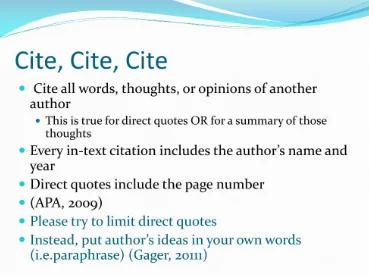
It is crucial to give credit where credit is due when borrowing someone else’s words, ideas, or labor by crediting the source.
This covers both a works cited page or reference list and in-text citations.
A properly formatted citation acknowledges the original author or creator and demonstrates that you have done your homework.
Always check with your instructor or go to a citation style guide to ensure you use the right citation format.
2. Scan for Plagiarism
Plagiarism tools can aid in locating any plagiarized material and highlight passages that call for reference or paraphrasing.
You may find numerous internet tools that can help you find any possible plagiarism in your work, like Turnitin, Grammarly, and Copyscape.
Even though these resources might be beneficial, using them to help direct your writing process rather than relying exclusively on them is crucial. Always double-check your work to make sure all sources have been correctly credited.
3. Paraphrase Effectively
Taking someone else’s thoughts or words and rephrasing them in your own words is known as paraphrasing. It’s crucial to make sure that your paraphrase doesn’t sound too much like the original material and that you properly attribute the source.
Effective paraphrasing involves carefully reading the original text before attempting to express the same notion in your own words without consulting the source material.
There are instances paraphrasing is considered cheating. Students should ensure paraphrasing is sufficiently different from the original content to avoid plagiarism.
4. Organize the points well
You can ensure that your writing is original and that you are not unintentionally plagiarizing by having a clear plan or structure. Start by drafting an outline that covers the key arguments you wish to make and the supporting evidence or sources.
Such will assist you in maintaining focus and ensuring the coherence and originality of your writing. Furthermore, a good structure might prevent you from unintentionally using too much data from one source without giving sufficient credit.
5. Seek Help from school writing centers

Writing centers offer assistance and direction to aid students in honing their writing abilities and forming sound citation and research habits.
The professionals at the writing center can assist you with everything from idea generation to proper citation of sources.
Additionally, they can provide feedback on your work to ensure you are fulfilling academic standards and assist you in understanding the objectives of your project.
Schedule an early appointment with your school’s writing center to maximize their assistance.
6. Learn the Importance of Originality
It is essential to understand the value of originality if you want to avoid plagiarism. It’s critical to realize that plagiarizing can have serious repercussions, including academic sanctions and reputational harm.
Remember, you should avoid copying because plagiarism is considered cheating and in some instances unethical. Making uniqueness a priority can help you write better and comprehend the subject of your research better.
Stressing uniqueness also demonstrates respect for the thoughts and efforts of others and motivates you to provide something fresh and worthwhile to the academic conversation. Remember that producing original work requires effort but is ultimately more satisfying and rewarding.
7. Read the Academic Integrity
Avoiding plagiarism requires reading and understanding your institution’s regulations on academic integrity. These policies define plagiarism and spell out the penalties for doing it.
Ensure you adhere to the criteria for academic integrity by becoming familiar with the rules and regulations established by your institution.
Mostly, this includes referencing sources correctly, effectively paraphrasing, and refraining from stealing or reusing someone else’s ideas without their consent.
Consult your instructor or academic counselor for advice if you are unsure about plagiarism or need assistance comprehending the policies.
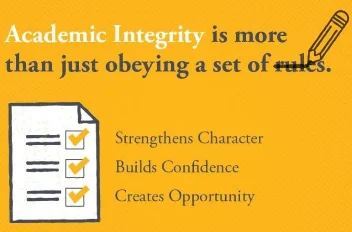
8. Consider your Professional Growth
Plagiarism damages your reputation as a professional or academic, and it can also negatively impact your career.
You can become known as a responsible and reliable researcher in your profession by emphasizing innovation and moral research methods.
Producing original material also gives you a chance to hone your critical reasoning and writing abilities, both of which are necessary for success in various occupations.
Reasons for Plagiarism
1. Not knowing it is bad
Plagiarism happens because some students might not know it is a major academic crime. They could not have learned the value of maintaining academic integrity, or they might not completely comprehend what constitutes plagiarism.
In other situations, students can also believe that their work won’t be carefully reviewed or that they can plagiarize without repercussions.
Avoiding plagiarism can be quite effective when you teach students about the repercussions of plagiarism and the value of accurate reference and attribution.
Additionally, helping students who have trouble writing might lessen the possibility of plagiarism by offering them resources and support.
2. To Meet Deadlines
Overwhelming academic workloads can cause students to struggle to keep up with numerous assignments, tests, and other academic commitments.
Some students may turn to plagiarism as a quick and simple solution to finish their tasks and fulfill their deadlines. However, this is a dangerous strategy that could have dire repercussions.
It is crucial for students to learn time management techniques and to ask for assistance when necessary to prevent using plagiarism.
Professors and academic institutions can also help solve this problem by offering assistance and tools to students with trouble managing their time.
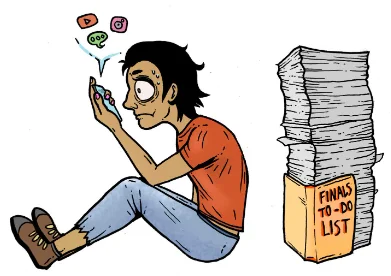
3. Laziness or Procrastination
Some students could find academic work boring or irrelevant, leading them to feel the need to rush through their assignments.
Accept the difficulties of creating creative work and see them as chances for improvement.
Furthermore, students who have trouble focusing or managing their time may put off their work until the last minute, giving them little time to do their projects.
Some students may resort to plagiarism as a result in order to complete their assignments fast.
Plagiarism brought on by procrastination or laziness can be avoided by encouraging students to establish better study habits and offering time management assistance.
4. Pressure to Score
Sometimes, students may feel that they cannot produce high-quality work on their own or that they must obtain a certain grade to succeed in their academic endeavors. Some students may succumb to this pressure and plagiarize in an effort to improve their results.
The significance of learning and academic advancement should be emphasized rather than just grades; hence, academic institutions and educators must foster this environment. This can lessen students’ pressure to do well and lower the likelihood of plagiarism.
5. No Sources available
Students may have trouble locating reliable sources to back up their claims, which may cause them to steal concepts or facts from other sources without giving due credit. This is especially typical when students are working on challenging or new subjects.
Educators can help students identify relevant sources for their study and educate them on how to cite sources correctly to prevent plagiarism in these situations.
Conclusion
Plagiarism is a severe problem that can seriously affect students, including academic sanctions and reputational harm. It is crucial to put originality and ethical research techniques first to avoid plagiarism.
This entails correctly referencing sources, successfully paraphrasing, arranging your ideas, getting assistance from writing centers, and being aware of your institution’s academic integrity regulations.
Students can position themselves for academic and professional success by accepting the challenge of producing original work and honing their writing and critical thinking abilities.
Remember that producing original work requires effort but is ultimately more satisfying and rewarding.
